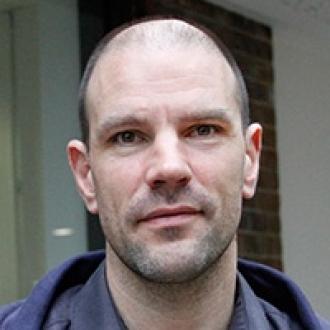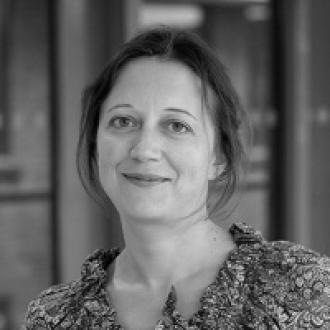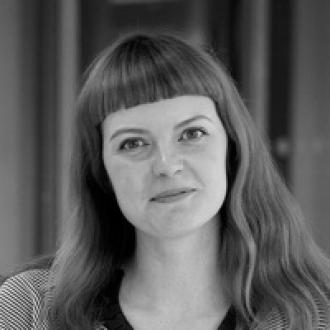- Undergraduate
English and Film BA (Hons)
Overview
Why study at the University of West London?
- Ranked 30th university in the UK - The Guardian University Guide 2025
- Our Film Production and Photograph courses are ranked #3 in London - Guardian University Guide 2025
- Number 1 London university for overall student satisfaction - National Student Survey 2024**
- Best university for Student Experience and Teaching Quality in the UK - The Times and Sunday Times Good University Guide 2024
Why study this course?
Do you have a passion for writing and storytelling? This highly contemporary and stimulating English and film degree will inspire and challenge you to apply your passion to the world of film, television and new media.
This joint honours in English and film course gives you the chance to develop your creative talents in film, screen media and writing in all their many forms while encouraging your understanding and critical analysis of literature.
By the time you complete your studies, you will have learned how to channel your creative instincts towards career success.

Select your desired study option, then pick a start date to see relevant course information:
Start date:
If your desired start date is not available, try selecting a different study option.
Why study English and Film with us?


What our students say…
I've learned an enormous amount and progressed so much. I can't express how much I loved this course and was very sad that it had come to an end.

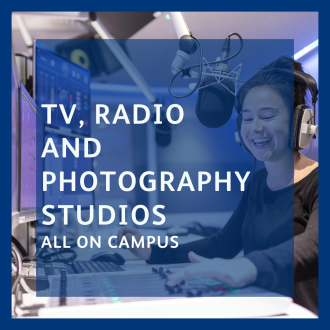


Course detail & modules
This joint honours in English and film combines a critical appreciation of literature with applied skills in a creative specialism.
By studying classic and contemporary literary texts, as well as learning the digital production techniques of audiovisual media, you will understand how to apply both knowledge sets in pursuit of a creative vision.
Our highly experienced lecturers will support you as you develop the ability to apply your creative talents to the world of digital moving image production.
On the practical parts of the course, you will learn skills including:
- industrial contexts
- forms and genres
- postproduction.
The theory-based parts of the course will help you develop transferable skills useful in a range of media roles. You will:
- learn critical thinking
- develop methods of analysis and response
- learn how to structure complex arguments
- learn to communicate ideas with clarity and economy
- develop advanced conceptual and communication skills
- develop enterprise, digital literacy and IT awareness through film production.
These capabilities are in high demand among employers in the creative industries, who are searching for graduates with a balance of theoretical knowledge and practical skills.
There is also an opportunity for you to take a work placement. This gives you the chance to make industry contacts as well as to apply what you are learning in the real world.
Compulsory modules
-
English Literature I: History, Form and Genre
In the first half of this module you will focus on the novel and the development of the genre using examples from the eighteenth, nineteenth and twentieth century literature. Concentrating on works (or extracts from works) by Samuel Richardson, Charlotte Brontë, Herman Melville, James Joyce and Toni Morrison, through lectures and seminars you will explore the novel form, and ask why it became the dominant mode of literary expression over the course of these three centuries.
In the second half of the module you will study a range of poems in English from different historical periods. You will cover the ways in which language and form work in poetry and the kinds of readings which can be used when looking at poems.
-
English Literature II: Critical Approaches (double credit module)
Introducing you to a range of critical approaches to understanding literature, this module will cover formalist, biographical, historicist, gender, psychological, sociological, reader-response, structuralist, postcolonial and deconstructionist models of engagement with literary texts. The aim is provide you with the tools you need to examine writing, writers, and our engagement with their works.
-
Video Production
Learn the basics of video production and film grammar, developing your skills as a filmmaker. Using hands-on exercises, you will learn photography, video, lighting, sound and scriptwriting.
-
Video Documentary Production
This is an intensely practical module, which lays the foundation for video work later in L4, and in modules at L5 and L6, as well as for future employability. You will learn the basics of filming, including camera operation, lighting, and recording sound. You will also learn the basics of editing, including sound mixing for video, structuring and scripting, and how to research stories for video.
-
Foundations of Creative Writing
You will study all the compulsory modules and will choose two of the optional modules
Compulsory modules
-
Literature and Modernity
-
The Canon Reloaded
On this module you will look at adaptations in the context of relevant cultural, critical, historical and technological factors. In addition, you will examine how and why certain texts are valued, and improve your abilities in research, academic writing and presenting effectively.
-
Media Content Production
In this module, you will learn the workflows and typical outputs of a three to four camera television studio. You will learn new roles and techniques based on communication (via talkback) and time management (both in the studio and on-screen).
Optional modules
-
Industry Experience
You will begin with a structured induction process, during which you will be guided in researching the job market, understanding professional responsibilities, preparing a CV plus cover letter and undertaking a mock interview. Additionally, you’ll be guided in contacting and negotiating with a potential host organisation/employer or client to secure your industry experience.
-
Visual Media Cultures
-
Worldbuilding
Explore the migration of form and content between different texts and media, with a focus on fiction. Underpinned by explorations of intertextuality and convergence culture, theories of adaptation, intermediality and transmedia storytelling are explored through key examples from film, literature, TV, videogames, new media, visual arts, and many other media.
You will study all the compulsory modules and will choose TWO of the optional modules
Compulsory modules
-
British and Irish Drama since 1945
-
Contemporary Writers and the City
On this module you'll explore literature by contemporary authors who focus on urban and architectural settings, themes and predicaments. You will cover these focal points in the context of contemporary debates concerning the status of the metropolis in a globalised world.
-
Dissertation
Optional modules
-
Video Essays
-
Bodies, Identities, Futures
In this module, you have the opportunity to encounter and engage with a range of sci-fi texts – some mainstream, some fringe – and to apply complex theoretical perspectives in the close readings of these texts. You are encouraged to develop and explore their research interests in a supported environment, providing significant autonomy in terms of assessment.
-
Writing for Performance
-
Project (mini)
Compulsory modules
-
English Literature I: History, Form and Genre
In the first half of this module you will focus on the novel and the development of the genre using examples from the eighteenth, nineteenth and twentieth century literature. Concentrating on works (or extracts from works) by Samuel Richardson, Charlotte Brontë, Herman Melville, James Joyce and Toni Morrison, through lectures and seminars you will explore the novel form, and ask why it became the dominant mode of literary expression over the course of these three centuries.
In the second half of the module you will study a range of poems in English from different historical periods. You will cover the ways in which language and form work in poetry and the kinds of readings which can be used when looking at poems.
-
English Literature II: Critical Approaches (double credit module)
Introducing you to a range of critical approaches to understanding literature, this module will cover formalist, biographical, historicist, gender, psychological, sociological, reader-response, structuralist, postcolonial and deconstructionist models of engagement with literary texts. The aim is provide you with the tools you need to examine writing, writers, and our engagement with their works.
-
Video Production
Learn the basics of video production and film grammar, developing your skills as a filmmaker. Using hands-on exercises, you will learn photography, video, lighting, sound and scriptwriting.
-
Video Documentary Production
This is an intensely practical module, which lays the foundation for video work later in L4, and in modules at L5 and L6, as well as for future employability. You will learn the basics of filming, including camera operation, lighting, and recording sound. You will also learn the basics of editing, including sound mixing for video, structuring and scripting, and how to research stories for video.
-
Foundations of Creative Writing
You will study all the compulsory modules and will choose TWO of the optional modules
Compulsory modules
-
Literature and Modernity
-
The Canon Reloaded
On this module you will look at adaptations in the context of relevant cultural, critical, historical and technological factors. In addition, you will examine how and why certain texts are valued, and improve your abilities in research, academic writing and presenting effectively.
-
Media Content Production
In this module, you will learn the workflows and typical outputs of a three to four camera television studio. You will learn new roles and techniques based on communication (via talkback) and time management (both in the studio and on-screen).
Optional modules
-
Industry Experience
You will begin with a structured induction process, during which you will be guided in researching the job market, understanding professional responsibilities, preparing a CV plus cover letter and undertaking a mock interview. Additionally, you’ll be guided in contacting and negotiating with a potential host organisation/employer or client to secure your industry experience.
-
Visual Media Cultures
-
Worldbuilding
Explore the migration of form and content between different texts and media, with a focus on fiction. Underpinned by explorations of intertextuality and convergence culture, theories of adaptation, intermediality and transmedia storytelling are explored through key examples from film, literature, TV, videogames, new media, visual arts, and many other media.
You will study all the compulsory modules and will choose TWO of the optional modules
Compulsory modules
-
British and Irish Drama since 1945
-
Contemporary Writers and the City
On this module you'll explore literature by contemporary authors who focus on urban and architectural settings, themes and predicaments. You will cover these focal points in the context of contemporary debates concerning the status of the metropolis in a globalised world.
-
Dissertation
Optional modules
-
Video Essays
-
Bodies, Identities, Futures
In this module, you have the opportunity to encounter and engage with a range of sci-fi texts – some mainstream, some fringe – and to apply complex theoretical perspectives in the close readings of these texts. You are encouraged to develop and explore their research interests in a supported environment, providing significant autonomy in terms of assessment.
-
Writing for Performance
-
Project (mini)
Compulsory modules
-
English Literature I: History, Form and Genre
In the first half of this module you will focus on the novel and the development of the genre using examples from the eighteenth, nineteenth and twentieth century literature. Concentrating on works (or extracts from works) by Samuel Richardson, Charlotte Brontë, Herman Melville, James Joyce and Toni Morrison, through lectures and seminars you will explore the novel form, and ask why it became the dominant mode of literary expression over the course of these three centuries.
In the second half of the module you will study a range of poems in English from different historical periods. You will cover the ways in which language and form work in poetry and the kinds of readings which can be used when looking at poems.
-
English Literature II: Critical Approaches (double credit module)
Introducing you to a range of critical approaches to understanding literature, this module will cover formalist, biographical, historicist, gender, psychological, sociological, reader-response, structuralist, postcolonial and deconstructionist models of engagement with literary texts. The aim is provide you with the tools you need to examine writing, writers, and our engagement with their works.
-
Video Production
Learn the basics of video production and film grammar, developing your skills as a filmmaker. Using hands-on exercises, you will learn photography, video, lighting, sound and scriptwriting.
-
Video Documentary Production
This is an intensely practical module, which lays the foundation for video work later in L4, and in modules at L5 and L6, as well as for future employability. You will learn the basics of filming, including camera operation, lighting, and recording sound. You will also learn the basics of editing, including sound mixing for video, structuring and scripting, and how to research stories for video.
-
Foundations of Creative Writing
This module will introduce you to the practice of creative writing. It will give you an overview that includes practical challenges, approaches to plot and narrative and considerations about composition and process,. You will explore various forms of creative writing from conventional fiction to creative nonfiction, writing poetry and performing writing. The aim of this module is to help you develop a positive and disciplined approach to your writing.
You will take a compulsory film module and choose:
- two from the option modules list A (literature)
- three from the option modules list B (production and industry).
Optional modules will run based on staff availability and the number of students enrolled in each module.
Compulsory modules
Optional modules
-
Industry Experience (B)
The aims of this module is to provide you with the opportunity to:
- identify potential professional opportunities and goals
- develop the skills and personal networks to make effective applications
- develop a real-life understanding of contemporary industry/organisational practice
- identify core competencies to support your future career
- cultivate a critical understanding of your strengths and weaknesses in a work-based situation
- develop your online professional presence and add elements to your portfolio of practical work (while refreshing key production skills).
-
Visual Media Cultures (B)
You will take the double-weighted Dissertation and choose:
- one from option list A (literature)
- one from option list B (literature)
- one from option list C
- one from option list D.
Optional modules will run based on staff availability and the number of students enrolled in each module.
Compulsory modules
Optional modules
-
British and Irish Drama since 1945 (A)
-
Crime and Fiction (B)
On this module you'll have the opportunity to address the representation of crime across a range of media forms, including novels, short stories, films, television, radio and graphic novels. The focus will be on the changes within a story as it is moved from one medium to another, for example, from page to screen.
-
Shakespeare on the Screen (B)
In this module you will examine how Shakespeare's plays have been adapted for film and television. You will look at the original plays, screen adaptations and a range of theoretical, critical and historical works.
-
Image and Text (B)
This module traces the dialogue between image and text, especially with the rise of Instagram, in the history of modern visual culture, from the early 1920s to today. You will explore how photographers and artists incorporate text into their work and how photography was used by writers. You will also examine the role that photography played in artistic and literary movements such as Surrealism.
-
Bodies, Identities, Futures (C)
In this module, you have the opportunity to encounter and engage with a range of sci-fi texts – some mainstream, some fringe – and to apply complex theoretical perspectives in the close readings of these texts. You are encouraged to develop and explore their research interests in a supported environment, providing significant autonomy in terms of assessment.
-
Media Project (Minor) (C)
You will develop a project over a single semester. The project outcome will be an artefact (for example, a short film, podcast or website) that takes an issue relevant to Media and Communications as its theme. The choice of appropriate technology will be guided both by the module tutor and by the previous modules you have studied.
-
Writing for Performance (D)
-
Video Essays (D)
Entry requirements
These can include:
- A Levels at grade B, C and C, or above
- BTEC Extended Diploma with Distinction, Merit, Merit
- Access to HE Diploma
- T Levels
You also need GCSE English and Maths (grade 9 - 4 / A* - C) or Level 2 equivalents.
Looking for BA (Hons) English and Film with Foundation Year?
Mature applicants (aged 21+): If you do not hold the qualifications listed but have relevant work experience, you are welcome to apply. Your application will be considered on an individual basis.
Level 5 (year 2) entry
To directly enter the second year of this course you will need to show appropriate knowledge and experience. For example, you are an ideal candidate if you have 120 undergraduate credits at Level 4 or a CertHE in a related subject area.
Level 6 (year 3) entry
To directly enter the third year of this course you need to show appropriate knowledge and experience. For example, you are an ideal candidate if you have 240 undergraduate credits (at Levels 4 and 5), a DipHE, Foundation Degree or HND in a related subject area.
Looking for BA (Hons) English and Film with Foundation Year?
You need to meet our English language requirement - a minimum of IELTS 6.5 or above, with 6.0 or above for each of the 4 individual components (Reading, Writing, Speaking and Listening). Visit our English language requirements page for information on other English language tests we accept.
You also need academic qualifications at the same level as UK applicants. In some countries where teaching is in English, we may accept local qualifications. Check for local equivalents.
We offer pre-sessional English language courses if you do not meet these requirements.
Looking for BA (Hons) English and Film with Foundation Year?
Mature applicants (aged 21+): If you do not hold the qualifications listed but have relevant work experience, you are welcome to apply. Your application will be considered on an individual basis.
Level 5 (year 2) entry
To directly enter the second year of this course you will need to show appropriate knowledge and experience. For example, you are an ideal candidate if you have 120 undergraduate credits at Level 4 or a CertHE in a related subject area.
Level 6 (year 3) entry
To directly enter the third year of this course you need to show appropriate knowledge and experience. For example, you are an ideal candidate if you have 240 undergraduate credits (at Levels 4 and 5), a DipHE, Foundation Degree or HND in a related subject area.
Looking for BA (Hons) English and Film with Foundation Year?
Fees & funding
Additional costs
There are additional costs for this course that are not included in the tuition fees. See the links below to get a better idea of what to expect:
Please note:
- Fees for the 2026/27 academic year and onwards may be subject to Government regulation and change.
- Tuition fees are charged for each year of your course. If your course runs for two years or more, you will need to pay the fee for each academic year at the start of that year.
- If your course runs for less than two years, the cost above is for your full course and you will need to pay the full fee upfront.
- If no fee is shown above then the fees for this course are not available yet. Please check again later for updates.
Funding your studies
You may be eligible for a student loan to cover the cost of tuition fees, or a maintenance loan. Additional funding is available to some types of students, such as those with dependants and disabled students.
We offer generous bursaries and scholarships to make sure your aspirations are your only limit. In recent years, hundreds of students have received our Full-time Undergraduate Student Bursary.
View full details, including conditions and eligibility.
Additional costs
There are additional costs for this course that are not included in the tuition fees. See the links below to get a better idea of what to expect:
Please note:
- Fees for the 2026/27 academic year and onwards may be subject to Government regulation and change.
- Tuition fees are charged for each year of your course. If your course runs for two years or more, you will need to pay the fee for each academic year at the start of that year.
- If your course runs for less than two years, the cost above is for your full course and you will need to pay the full fee upfront.
- If no fee is shown above then the fees for this course are not available yet. Please check again later for updates.
International students - funding your studies
We offer scholarships for international students including International Ambassador Scholarships.
Further information about funding and financial support for international students is available from the UK Council for International Student Affairs.
Teaching staff
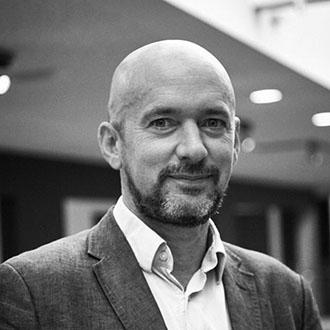
Professor Garin Dowd
I am a Professor of Film, Literature and Media, and my current research focuses on representations of space, location and spatial relations in the novel and in film. I am a member of the European Network for Cinema and Media Studies (NECS), the Society for Cinema and Media Studies (SCMS) and the Samuel Beckett Society.
I am a Professor of Film, Literature and Media, and my current research focuses on representations of space, location and spatial relations in the novel and in film. I am a member of the European Network for Cinema and Media Studies (NECS), the Society for Cinema and Media Studies (SCMS) and the Samuel Beckett Society.
Study & career progression

There is a range of potential jobs for English and film graduates. You could go on to work to build a career in the following fields:
- film and television
- publishing
- journalism
- radio broadcasting
- research
- new media
Many of our staff have successful backgrounds in relevant industries and can advise you on how to kick-start your career.
You may decide to specialise in a related area or explore a new subject. Please see our postgraduate courses for a range of options.
How to apply

Head to the UCAS website where you can apply using:
- our institution code - W05
- the UCAS course code (below)
Want to ask us a question first? We would love to hear from you. Contact us free on:
Apply for this course
- Institution code
- W05
- UCAS code
- currentVariantData.field_p_cv_ucas_code
Next steps after making your application
We aim to make a decision on your application as quickly as we can. If we need any more information about your qualifications, we will be in touch.
In the meantime, come and visit us and find out more about what studying at UWL is like. Sign up for an open day or join a campus tour.
Visit us and see for yourself
Talk to our tutors and find out about our courses and facilities at our next open day or join a campus tour.
Our prospectus
All of our courses in one place - download now or order a hard copy.
We're here to help
Any questions about a course or studying at UWL? We're here to help - call us on 0800 036 8888 (option 2, Monday – Friday 10am-4pm) or email us on courses@uwl.ac.uk.

You can apply online at any time by following the link below.
Our application form will ask you for some information about what you want to study, your previous qualifications or experience, and how we can contact you.
Want to ask us a question first? We would love to hear from you. Contact us free on:
- 0800 036 8888
- courses@uwl.ac.uk
Apply for this course
Next steps after making your application
We aim to make a decision on your application as quickly as we can. If we need any more information about your qualifications, we will be in touch.
In the meantime, come and visit us and find out more about what studying at UWL is like. Sign up for an open day or join a campus tour.
Visit us and see for yourself
Talk to our tutors and find out about our courses and facilities at our next open day or join a campus tour.
Our prospectus
All of our courses in one place - download now or order a hard copy.
We're here to help
Any questions about a course or studying at UWL? We're here to help - call us on 0800 036 8888 (option 2, Monday – Friday 10am-4pm) or email us on courses@uwl.ac.uk.

You can apply to us in two ways:
- on the UCAS website you will need our institution code (W05) and the UCAS course code (at the top of this page)
- directly on our website – follow the ‘apply now’ link below
Want to ask us a question first? Our dedicated international students’ team would love to hear from you.
- Ask the International Recruitment Team a question
- learn more about international student applications
- find out more about why you should study in London at the Career University.
Apply for this course
Next steps after making your application
We aim to make a decision on your application as quickly as we can. If we need any more information about your qualifications, we will be in touch.
In the meantime, come and visit us and find out more about what studying at UWL is like. Sign up for an open day or join a campus tour.
Visit us and see for yourself
Talk to our tutors and find out about our courses and facilities at our next open day or join a campus tour.
Our prospectus
All of our courses in one place - download now or order a hard copy.
We're here to help
Any questions about a course or studying at UWL? We're here to help - call us on 0800 036 8888 (option 2, Monday – Friday 10am-4pm) or email us on courses@uwl.ac.uk.
Search for courses
ARTSFEST
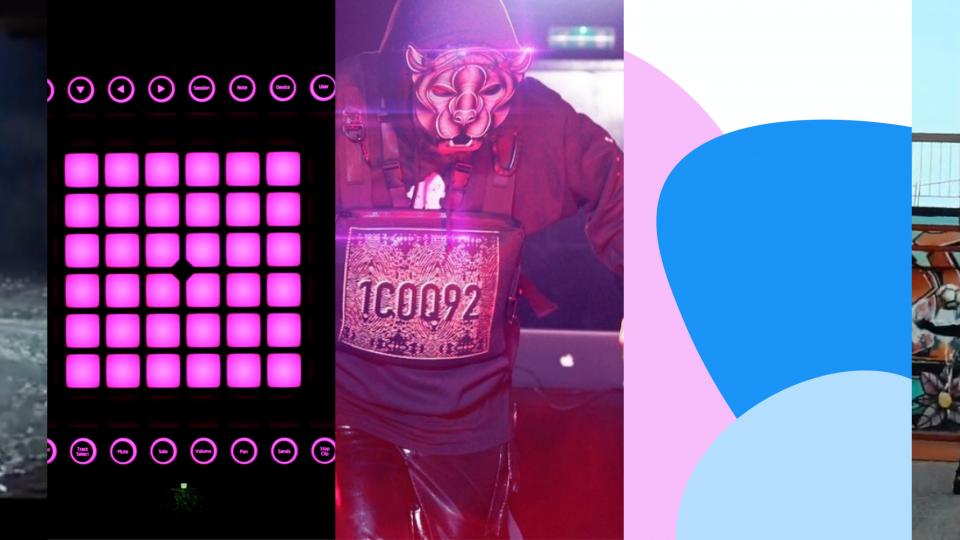
Student life at UWL
Important notes for applicants
Disclaimer
*Modern universities - defined as higher education institutions that were granted university status in, and subsequent to, 1992.
**The National Student Survey 2023 and 2024 - Average of answers to all questions by registered student population. Excludes specialist institutions.
Testimonials - our students or former students provided all of our testimonials - often a student from the course but sometimes another student. For example, the testimonial often comes from another UWL student when the course is new.
Optional modules - where optional modules are offered they will run subject to staff availability and viable student numbers opting to take the module.
Videos - all videos on our course pages were accurate at the time of filming. In some cases a new Course Leader has joined the University since the video was filmed.
Availability of placements - if you choose a course with placement/internship route we would like to advise you that if a placement/internship opportunity does not arise when you are expected to undertake the placement then the University will automatically transfer you to the non-internship route, this is to ensure you are still successful in being awarded a degree.


